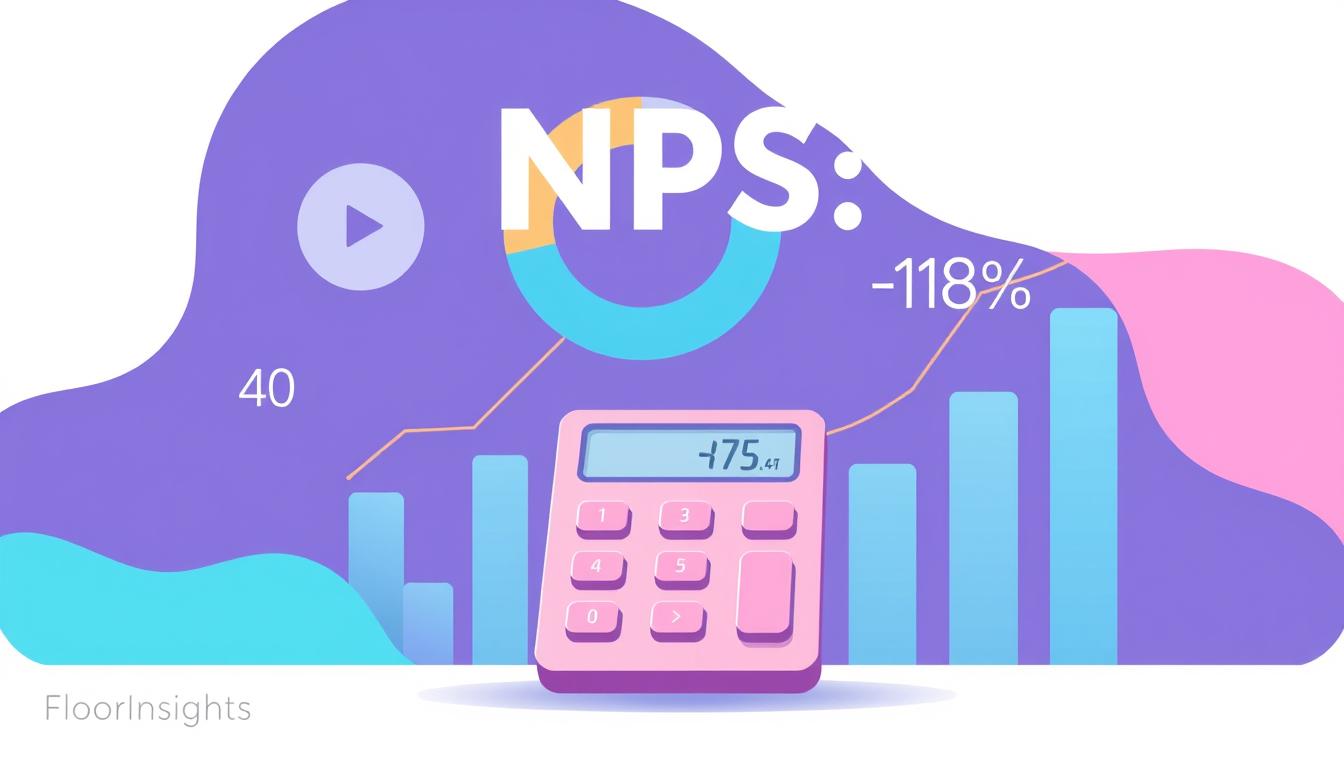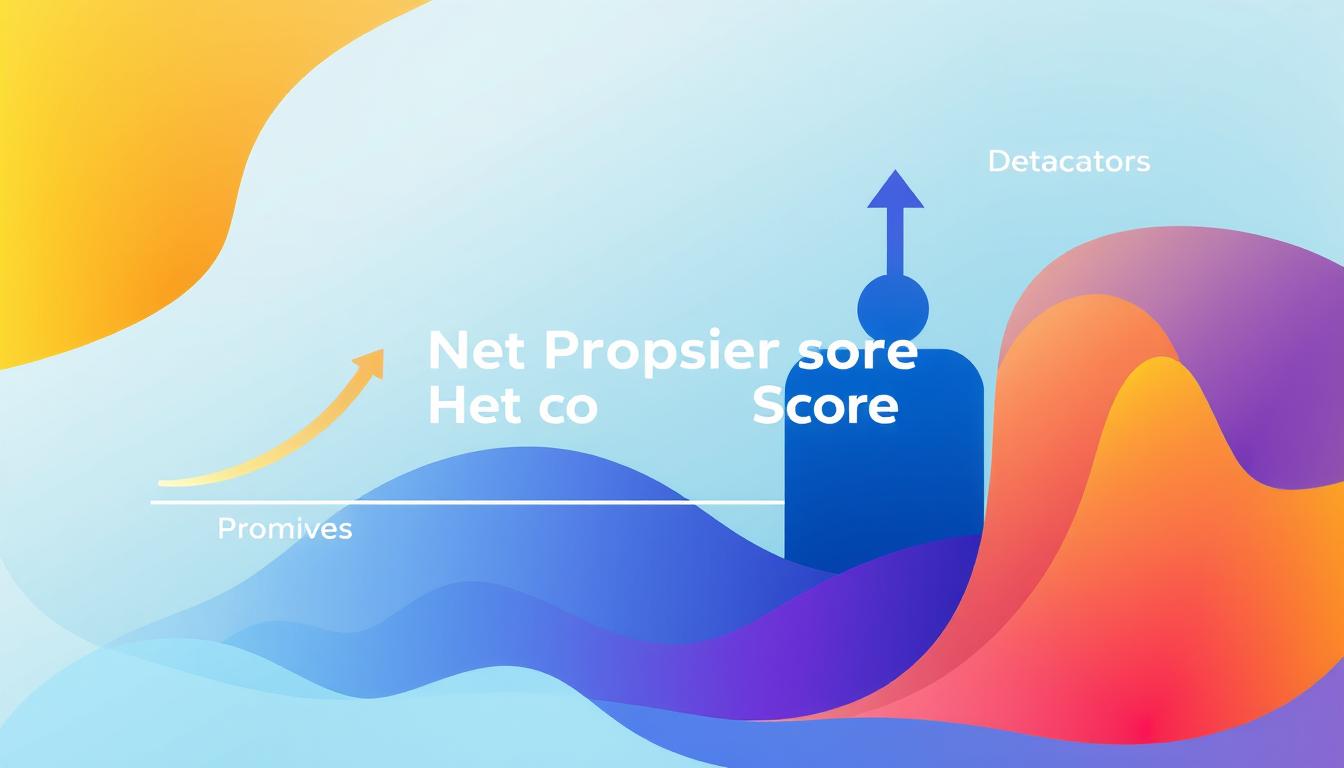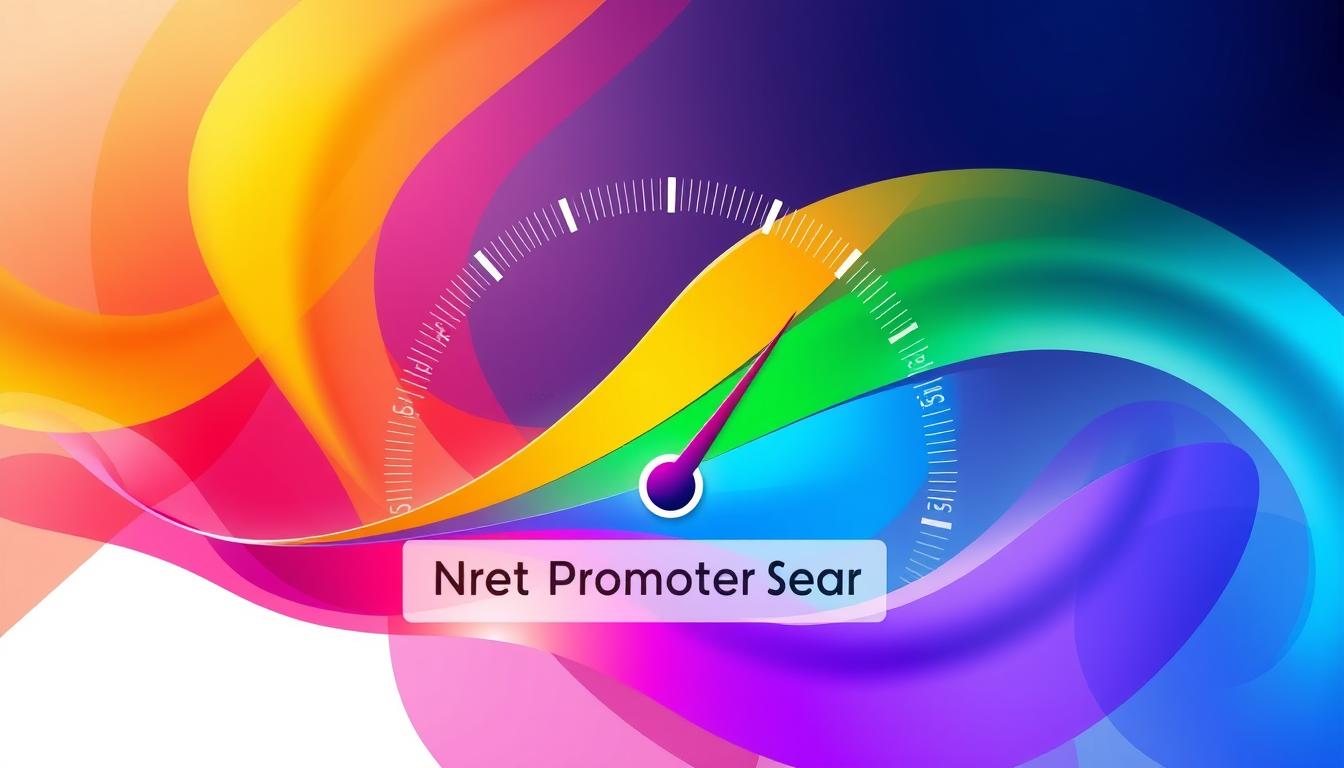In today’s fast-paced business environment, the integration of AI into customer feedback systems is revolutionizing how we understand and act on customer insights. The Net Promoter Score (NPS) is at the forefront of this transformation, offering a reliable metric to gauge customer satisfaction and loyalty. Through AI integration, we can streamline feedback processes and enhance the accuracy of insights garnered from our NPS survey platform. As we delve into this evolving landscape, particularly within the Indian business context, we will highlight the significant role AI plays in improving customer feedback mechanisms and ensuring that businesses remain responsive to their clientele’s needs.
Key Takeaways
- AI enhances customer feedback systems, improving accuracy and efficiency.
- The Net Promoter Score provides a reliable metric for measuring customer satisfaction.
- AI integration streamlines the processes involved in NPS survey platforms.
- Understanding customer feedback is crucial for fostering loyalty.
- Businesses in India are increasingly adopting AI for better customer insights.
Understanding Customer Feedback Systems
Customer feedback systems play a crucial role in our pursuit of enhancing customer experiences and driving business growth. These systems serve as structured methods for gathering, analyzing, and acting upon customer input. By utilizing effective feedback mechanisms, organizations can glean meaningful insights into their performance and customer satisfaction levels.
For instance, many leading companies in India have successfully implemented customer feedback systems to refine their service offerings. These systems allow businesses to engage effortlessly with customers, making it easier to identify areas needing improvement. Through robust feedback analysis, organizations can pinpoint strengths and weaknesses, ultimately paving the way for increased customer loyalty.
NPS measurement emerges as a significant metric within customer feedback systems. By evaluating customer sentiment, we can gauge overall satisfaction and likelihood to recommend. This feedback data becomes pivotal for strategic decision-making, enabling organizations to implement changes aligned with customer desires.
In summary, understanding the fundamentals of customer feedback systems enriches our insights. By focusing on feedback analysis and NPS measurement, we reinforce our commitment to fostering strong relationships with customers, ensuring that their voices are heard and valued.
The Importance of Customer Feedback
Understanding the importance of customer feedback significantly shapes our strategies for enhancing customer loyalty and fostering business growth. Feedback mechanisms, particularly tools like Net Promoter Score (NPS), provide invaluable insights into customer sentiments. In today’s competitive market, we must actively seek out and respond to what our customers think and feel.
Multiple studies emphasize that businesses prioritizing customer feedback tend to perform better. For instance, a report from the Indian market shows a direct link between proactive feedback collection and improved customer loyalty. Businesses that engage with their clients increase their chances of retaining them, establishing long-term relationships that translate into sustained revenue growth.
Organizations that effectively implement feedback systems can derive key metrics that inform critical business decisions. Metrics like NPS not only gauge satisfaction but also measure customer loyalty. As we analyze these feedback systems, it’s crucial to note that a genuine commitment to understanding customer needs can lead to enhancements in product offerings and service quality.
| Key Metrics | Impact on Business Growth | Effect on Customer Loyalty |
|---|---|---|
| NPS | Increases revenues by identifying promoters. | Fosters repeat purchases and advocacy. |
| CSAT (Customer Satisfaction Score) | Drives improvements in service delivery. | Enhances overall customer experience. |
| CES (Customer Effort Score) | Reduces pain points in the customer journey. | Strengthens customer retention rates. |
Incorporating customer feedback into our operational framework is not just advantageous but essential for staying relevant and competitive. Acknowledging the importance of customer feedback positions us to adapt to changing consumer expectations and solidifies our pathway to sustained success.
What is Net Promoter Score?
The Net Promoter Score serves as a vital metric for businesses seeking to gauge customer loyalty and satisfaction. Understanding the Net Promoter Score definition helps us appreciate its role in measuring customer engagement levels effectively.
Definition and Purpose
The Net Promoter Score definition refers to a system designed to evaluate customers’ willingness to recommend a company’s products or services to others. This single-question survey typically asks respondents to rate their likelihood of recommending a brand on a scale from 0 to 10. The NPS purpose extends beyond simple feedback; it strives to identify areas requiring improvement, foster customer relationships, and enhance overall business performance.
How NPS Works
Understanding NPS mechanics involves recognizing how scores categorize customers into three distinct groups: promoters, passives, and detractors. Promoters (those who score 9-10) are enthusiastic supporters of the brand, while passives (scores of 7-8) display satisfaction but lack loyalty. Detractors (scores of 0-6) can hinder business growth and reputation. Companies analyze these scores to inform their customer engagement strategies, ultimately driving improvements that lead to greater loyalty and retention.
Why AI is Crucial for Modern Feedback Systems
The integration of AI in feedback systems transforms how businesses evaluate and enhance customer experiences. With advanced capabilities in data analysis, we can harness AI to extract actionable insights from vast amounts of feedback data. This enables organizations to understand customer sentiments more thoroughly and adapt strategies accordingly.
Enhanced Data Analysis
AI technologies streamline data analysis by identifying patterns and trends within customer feedback. As we leverage machine learning algorithms, our ability to predict customer preferences improves significantly. For instance, tools like Zoho Analytics allow businesses to examine feedback and derive meaningful conclusions based on historical data.
The following table illustrates the impact of AI on data analysis in feedback systems:
| AI Tool | Functionality | Benefits |
|---|---|---|
| Zoho Analytics | Data visualization and reporting | Enhanced decision-making through visual insights |
| Qualtrics | Sentiment analysis | Understanding customer feelings in real-time feedback |
| SurveyMonkey | Predictive analytics | Identifying future trends based on past feedback |
Real-Time Insights
AI capabilities in real-time feedback collection empower businesses to respond swiftly to customer concerns. Instant alerts based on sentiment analysis allow companies to proactively address issues before they escalate. By implementing solutions like Freshdesk, organizations can engage with customers directly, fostering loyalty and trust.
Utilizing AI in feedback systems creates a more agile environment where we dynamically adjust our approaches based on immediate customer sentiments. Such responsiveness not only enhances customer satisfaction but also drives long-term business success.
The Role of AI in NPS Survey Platforms
AI plays a transformative role in the effectiveness of NPS survey platforms by streamlining processes and improving the quality of feedback gathered. Through cutting-edge technology, automated feedback collection has become increasingly efficient, allowing businesses to generate accurate insights into customer satisfaction.
Automated Data Collection
With the advent of AI NPS survey platforms, automated feedback collection simplifies and accelerates the process of gathering customer opinions. This technology eliminates the tedious manual input that often introduces human error. As a result, businesses can quickly obtain actionable data that reflects their customers’ true sentiments.
Improved Feedback Accuracy
The application of AI significantly enhances the accuracy of feedback received. By leveraging algorithms that process customer responses in real-time, companies can ensure that the data analyzed is both timely and precise. This level of accuracy allows for better decision-making and aligns business strategies with customer expectations. Specifically, platforms like SurveySparrow and Typeform have integrated AI to facilitate these improvements, providing Indian businesses a competitive edge in understanding their customers.
Benefits of NPS Integration with AI
Integrating AI with Net Promoter Score (NPS) systems unlocks numerous advantages that significantly enhance our approach to customer feedback. This innovation leads to streamlined feedback processes, allowing companies to gather and analyze data more effectively. As we explore these benefits, the focus remains on how these advancements can drive valuable insights for businesses.
Streamlined Processes
The integration of AI into NPS systems transforms the way businesses manage customer feedback. Automation plays a crucial role in simplifying the collection and processing of survey data. As a result, organizations experience:
- Faster response times: Automated systems can gather responses quickly, making it easier to assess customer sentiment in real-time.
- Reduced manual effort: AI algorithms minimize the need for human intervention, thereby cutting down on errors and ensuring consistent data collection.
- Improved data management: Streamlined processes facilitate easier storage and retrieval of feedback, allowing for more efficient analysis.
Actionable Insights
This integration generates insightful data that businesses can leverage for strategic decision-making. By utilizing AI tools, organizations can uncover trends that might otherwise go unnoticed. Some of the key insights we can obtain include:
- Customer behavior patterns: Understanding what drives customer satisfaction or dissatisfaction helps inform product development and service enhanced offerings.
- Predictive analytics: AI algorithms can forecast potential issues before they escalate, allowing businesses to take proactive measures.
- Segmentation analysis: Insights derived from different customer segments enable tailored marketing strategies and improved engagement.

| Benefit | Traditional NPS | AI-Integrated NPS |
|---|---|---|
| Response Time | Longer, might take days | Immediate, near real-time |
| Data Accuracy | Manual entry prone to errors | Automated checks minimize errors |
| Insights Generation | Basic analysis | Advanced predictive insights |
| Customer Engagement | Less personalized | Highly personalized messaging |
Incorporating AI technology into our NPS systems not only optimizes operations but also enriches the data we collect, leading to enhanced customer experiences and informed business strategies.
How AI Techniques Improve Net Promoter Score Measurement
In our quest for effective NPS improvement, we leverage advanced AI techniques that significantly enhance the way we measure customer loyalty. These techniques empower businesses to gain deeper insights into customer behaviors, ensuring accurate NPS scores that reflect genuine sentiments.
Machine learning algorithms play a crucial role in analyzing vast amounts of customer feedback data. By identifying patterns, these algorithms help us understand what drives customer satisfaction and loyalty. This deeper understanding is paramount in refining our feedback mechanisms.
Data mining techniques allow us to excavate meaningful information from large datasets. This process involves discerning trends and preferences that may not be immediately apparent. As a result, our methods of measuring customer loyalty become more nuanced and informative.
For instance, Indian businesses employing these AI techniques have reported more accurate NPS evaluations, leading to impactful strategies for addressing customer concerns. The integration of AI in NPS assessment goes beyond simple score calculation; it enables a holistic view of the customer experience, enhancing our ability to respond effectively.
By embracing these advanced AI methods, we ensure that our approach to measuring customer loyalty evolves, providing us with the tools to foster stronger relationships with our clients and drive business growth.
Key Features of AI-Driven Net Promoter Score Software
In today’s fast-paced market, understanding customer sentiments and predicting behaviors forms the backbone of effective customer relationship management. The integration of AI-driven NPS software facilitates a nuanced appreciation of customer feedback, significantly enhancing our strategies for engagement.
Sentiment Analysis
Sentiment analysis serves as a pivotal feature of AI-driven NPS software. It goes beyond simple numerical scores, allowing us to decode the underlying emotions associated with customer responses. By analyzing text from surveys and reviews, sentiment analysis helps us identify whether feedback is positive, negative, or neutral. This information can lead us to actionable insights that align with customer expectations and needs.
Predictive Analytics
Predictive analytics further augments the capabilities of AI-driven NPS software by forecasting customer behavior and preferences. By scrutinizing historical data and current trends, we can better understand potential future actions from our customers. This predictive capability allows us to tailor marketing strategies, drive product development, and refine customer service initiatives more effectively.
Implementing AI in Your NPS Survey Strategy
To effectively adopt an AI NPS strategy, it is essential to adopt a structured approach. Choosing the right NPS tool can greatly enhance the efficiency and insights derived from customer feedback. By following some best practices for implementation, we can maximize the potential of AI in our feedback systems.
Choosing the Right NPS Tool
When selecting a suitable NPS tool, consider the following criteria:
- User Friendliness: An intuitive interface can facilitate easier navigation and data interpretation.
- Integration Capabilities: The tool should integrate seamlessly with existing CRM and data management systems.
- Scalability: It must accommodate our current needs while allowing for growth in the future.
- Analytics Features: Robust reporting and analysis functionalities are vital for deriving actionable insights.
Best Practices for Implementation
Implementing an AI-driven NPS strategy effectively requires adherence to several best practices:
- Start Small: Test the AI integration on a smaller scale before a full-scale rollout. This helps identify any potential issues early on.
- Prioritize Training: Ensure team members understand how to use the new tool effectively and interpret the feedback gathered.
- Continuous Feedback Loop: Regularly solicit feedback on the NPS process to refine our approach and tool use further.
- Utilize Insights: Make data-driven decisions based on the insights derived from the NPS tool to enhance customer experience.
Case Studies: Success Stories of NPS and AI Integration
We explore some enlightening NPS and AI case studies that demonstrate the powerful outcomes resulting from the integration of these technologies across various businesses in India. By examining successful integration stories, we can see the tangible benefits that stem from the use of artificial intelligence in customer feedback systems.
Notable examples show how companies have leveraged AI to enhance customer feedback success, leading to substantial improvements in client satisfaction and retention rates. Here, we present a table detailing some of these impressive results:
| Company | Industry | NPS Increase (%) | Customer Retention (%) | AI Technology Used |
|---|---|---|---|---|
| Tata Consultancy Services | IT Services | 15 | 90 | Predictive Analytics |
| Flipkart | E-commerce | 20 | 85 | Sentiment Analysis |
| HDFC Bank | Banking | 12 | 88 | Machine Learning |
| Ola Cabs | Transportation | 18 | 82 | Chatbot Integration |
These successful integration stories underline the effectiveness of combining NPS with AI. The measurable impacts across various industries inspire our focus on enhancing customer feedback systems. As we continue to witness such transformations, we encourage businesses to explore the potential of NPS and AI integration for their own customer experiences.
Challenges in Integrating AI with NPS
Integrating AI systems with NPS can offer remarkable benefits, but we must recognize the challenges of AI NPS integration that organizations face in this endeavor. Understanding these obstacles is crucial for a successful implementation strategy. Key areas of concern include technical issues and data privacy in feedback systems, which are vital for protecting customer information while ensuring seamless functionality.
Technical Limitations
Organizations often encounter various technical issues during the integration process. Compatibility between existing software and new AI technologies can pose significant hurdles. Additionally, data management challenges may arise due to the sheer volume of feedback data, which requires robust analytical capabilities. Addressing these technical limitations is essential for realizing the potential of AI-enhanced NPS systems.
Data Privacy Concerns
As we implement AI in feedback systems, concerns surrounding data privacy in feedback systems become increasingly prominent. Regulatory frameworks in India mandate strict guidelines on data protection, making it imperative for organizations to maintain compliance. Failure to address these privacy issues not only compromises customer trust but can also lead to legal ramifications. Prioritizing data security while integrating AI with NPS systems will help build a more robust relation with our customers.
| Challenge | Description | Impacts |
|---|---|---|
| Technical Limitations | Compatibility issues with existing systems | May hinder seamless data processing |
| Data Management | Challenges with handling large feedback datasets | Impacts the accuracy of analytics |
| Data Privacy Concerns | Compliance with regulations | Risk of legal issues and loss of customer trust |
Future Trends in AI and NPS Systems
The future of AI in NPS signifies a pivotal shift in how organizations perceive and interact with customer feedback. As we venture into a more technology-driven world, we will notice several significant trends in customer feedback technology shaping the evolving NPS systems. Scheduled advancements in machine learning and natural language processing will produce more comprehensive insights, tailoring feedback mechanisms to meet specific client needs.
One remarkable trend involves leveraging AI for predictive analytics. By analyzing historical data, organizations will gain foresight into customer satisfaction trends. This capability allows us to proactively address issues, enhancing customer experience while improving retention rates. Moreover, automation will streamline the feedback process, significantly reducing the time spent on data collection and analysis.
- Integration of real-time feedback systems will improve responsiveness.
- Smart algorithms will enhance data interpretation, providing actionable insights.
- Growing emphasis on data privacy will reflect in customer feedback technology development.
The implications of these trends for the Indian market are huge, considering rapid digitalization and rising customer expectations. Evolving NPS systems will not only cater to traditional metrics but also adapt to changing consumer behaviors. Our approach must adjust accordingly, ensuring we remain competitive and responsive in an ever-evolving landscape.
Conclusion
In this exploration of how AI enhances customer feedback systems via NPS integration, we have uncovered significant insights that underscore its transformative potential. The conclusion on NPS and AI integration highlights a crucial understanding that businesses can leverage these technologies to refine their customer engagement strategies. From enhanced data analysis to real-time insights, we’ve examined how AI not only streamlines processes but also enriches the overall customer experience.
Our summary of benefits emphasizes the key role that AI plays in boosting the accuracy and efficiency of NPS systems. Even though we face challenges such as technical limitations and data privacy concerns, the advantages far outweigh these obstacles. Embracing AI technologies enables us to gather and analyze customer feedback more effectively, laying the groundwork for informed decision-making.
As we look ahead, the future outlook is indeed promising. With the ongoing advancements in AI, we can expect an even more sophisticated approach to customer feedback and NPS measurement in the Indian market. This synergy between NPS and AI will undoubtedly lead to enhanced loyalty, better service delivery, and a stronger connection with our customers.
FAQ
What is the Net Promoter Score (NPS)?
The Net Promoter Score (NPS) is a widely used metric that measures customer loyalty and satisfaction. It categorizes respondents into promoters, passives, and detractors based on their likelihood to recommend a company’s products or services.
How does an NPS survey work?
An NPS survey typically consists of a single question asking customers to rate their likelihood of recommending a company on a scale from 0 to 10. Based on their responses, customers are grouped into three categories, which helps businesses understand their overall customer sentiment.
Why is customer feedback important for businesses?
Customer feedback is crucial for businesses as it provides insights into customer experiences, preferences, and expectations. By analyzing this feedback, companies can make informed decisions that drive improvements to products, services, and overall customer experiences.
What are the benefits of using an NPS survey platform?
Utilizing an NPS survey platform allows businesses to systematically collect feedback, analyze data efficiently, and track customer loyalty over time. This process can lead to actionable insights that help enhance customer engagement and drive business growth.
How does AI enhance NPS measurement?
AI enhances NPS measurement through improved data analysis and real-time insights, enabling businesses to respond promptly to customer concerns. AI techniques like sentiment analysis and predictive analytics also provide deeper understanding of customer behaviors and preferences.
What should we consider when choosing an NPS survey platform?
When selecting an NPS survey platform, we should consider features such as ease of integration, automation capabilities, feedback accuracy, and reporting functionalities. It’s also essential to ensure the platform aligns with our specific business needs and goals.
Can you explain the connection between NPS and business growth?
NPS is directly linked to business growth as it reflects customer loyalty and satisfaction. A higher NPS typically indicates strong customer relationships, leading to increased retention, referrals, and ultimately, revenue growth. Companies that actively manage their NPS often see improvements in their overall performance.
What challenges arise from integrating AI with NPS systems?
Integrating AI with NPS systems can present challenges such as technical limitations, data privacy concerns, and ensuring the accuracy of AI-driven insights. Businesses must address these challenges through careful planning and adherence to relevant regulations.
How can AI improve feedback accuracy in NPS surveys?
AI improves feedback accuracy in NPS surveys by minimizing human error during data collection and utilizing advanced analytical techniques to interpret customer sentiment. This enhances the reliability of insights drawn from the survey results.






